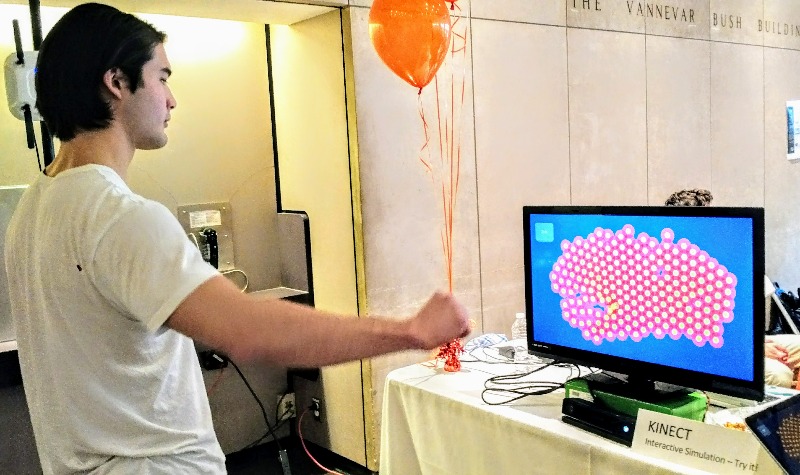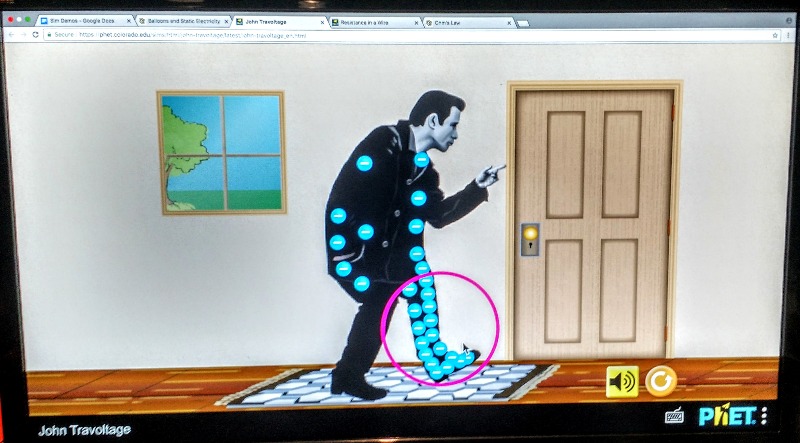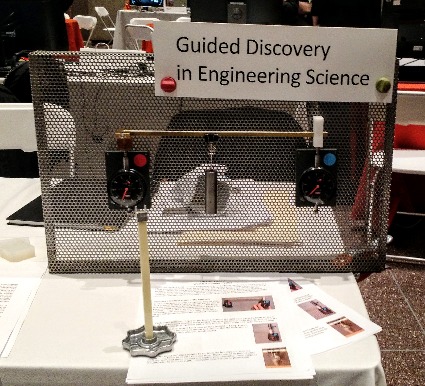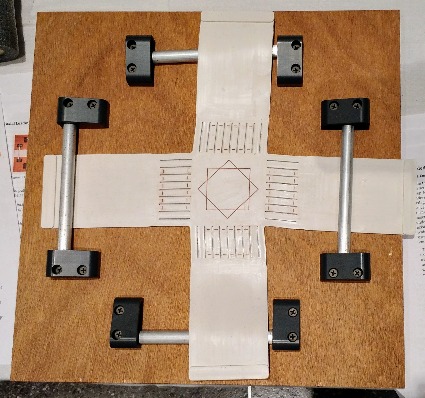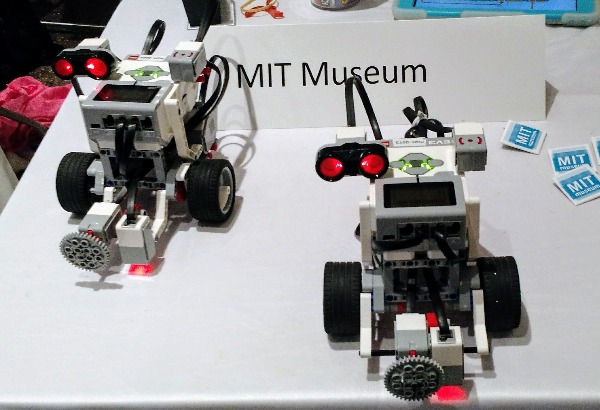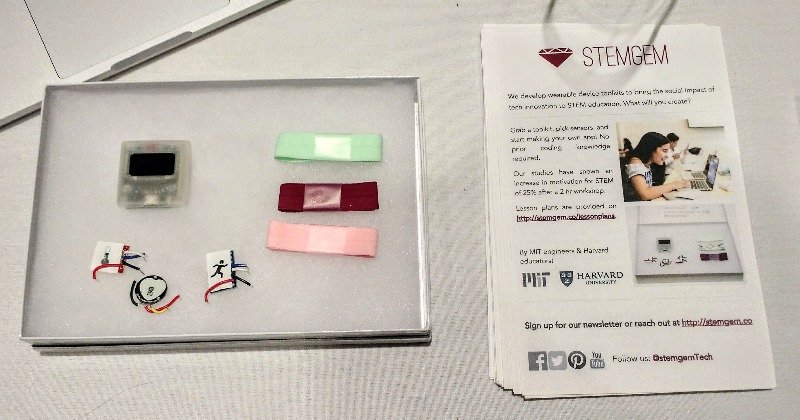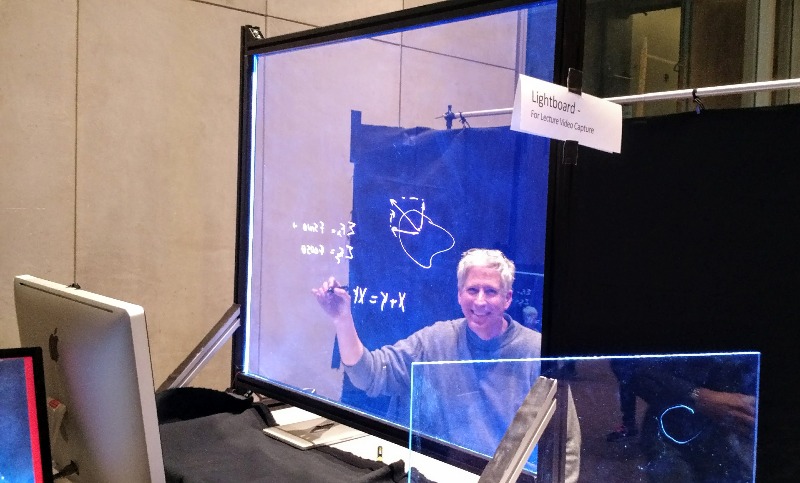MIT Festival of Learning: Expo by Yuliya K. '18
how MIT is leading the educational revolution
The Festival of Learning is an annual event organized by the MIT Office of Digital Learning around the idea that we need to bring technology and pedagogy together for effective learning. I blogged an overview of the first Festival here. This post is the second of a series of three posts about this year’s Festival. It highlights the latest developments in education at MIT and beyond, showcased at the FoL Learning Expo. You can read the first FoL post about Woodie Flowers’ “Nerd Epistemology” here (Prof. Flowers is the co-founder of the FIRST Robotics Competition and MIT Professor of Mechanical Engineering).
Note: this post was originally published on the MIT Office of Digital Learning blog here.
I continue to be astounded by the opportunities in education at MIT. The Institute is on the forefront of digital and project-based education. Technological aids and passionate faculty work hard to ensure that we graduate with the practical tools necessary in the workplace.
This year, the Festival of Learning Expo showcased 29(!) amazing developments at MIT and beyond. Two hours was not nearly enough to see the booths. The presenters were thrilled to tell me about their projects, and I wanted to try all the demos.
This post is just a fraction of the fascinating information I absorbed at the Expo, arranged by booth number. If you’re intrigued by the projects, follow the links to learn more. Visit openlearning.mit.edu for a compilation of initiatives to transform teaching and learning at MIT. And if you’d like to explore other projects showcased at the Expo, see the Learning Expo program here.
Making Creative Radio at WMBR
WMBR is the MIT community radio, run entirely by MIT students and alumni. Many of my friends have been involved with the group, some producing their own radio shows as early as sophomore year of college! This year, WMBR is exploring new creative techniques. Most recently, they experimented with ambient noise by equipping one of the members with six microphones for a fictional “quest” to turn in a problem set. The student was recorded for twenty minutes, rushing down the Infinite and bumping into friends. After the success of this exploration, WMBR is now working on more.
Educational Studies Program
MIT ESP is a student group that organizes two of the most beloved weekends on campus: Splash and Spark. Splash is a weekend for high school students to learn from MIT student and alumni volunteers, and Spark is its counterpart for middle schoolers. You can’t miss the events on campus. Dozens of smaller students flood the hallways for classes on anything from mythology to underwater basket weaving to number theory—the motto is “teach anything” and the 200+ MIT instructors fully take advantage of the freedom of choice. The program has become so popular with visitors that ESP is now looking for more teachers. Anyone can join—remember, you can teach anything! And if you can’t make it to Splash or Spark, neither as a participant nor instructor, check out other ESP programs at esp.mit.edu.
J-WEL: Sparking an Education Renaissance
J-WEL, or the Abdul Latif Jameel World Education Laboratory, is the most recent project to come out of the MIT Campaign for a Better World, and the Laboratory representatives came to the Expo with the goal of raising awareness of their launch. They asked me to emphasize that J-WEL is developing platform for faculty and students to engage with MIT and the world. The group aims to spark a global education renaissance for learners across ages and geography by assembling a global community for sustainable transformation through research policy, pedagogy, and practice. And they hope that more students and faculty get involved today!
Kinect Interactive Simulation – Try it!
Although I wasn’t able to operate the Kinect “molecular dynamics” simulation myself (turns out, Microsoft Kinect doesn’t work well for people in black clothing!), I loved the concept and had fun watching the student presenters use the application. The project, built at the Interactive Materials Learning Laboratory, allows students to experience basics physics hands-on through simple Kinect simulations. The student in the picture below is exploring molecular dynamics, “playing” with a fundamental concept in materials science.
CodeSeal: Integrating Computation into GIRs
CodeSeal is looking for computational curriculum developers to help bring coding into every major and discipline. The idea behind CodeSeal is to help students learn programming within their department. For example, students in introductory physics could practice modeling basic simulations—CodeSeal mentors would introduce the minimum programming skills to succeed in the field. The CodeSeal team is currently in the process of reaching out to MIT faculty and staff to bring the program to undergraduate classrooms. They are also looking for faculty, staff, and students to help out with the planning, creating programming tutorials, and outreach.
Guided Discovery in Engineering Science
Guided Discovery, an initiative led by Professor Emanuel Sachs, refers to the collection of short classroom labs offered in MIT introductory mechanical engineering classes to introduce complex concepts in an intuitive way. The labs are neither difficult nor expensive, but they still model essential ideas effectively—ideas that are often hard to comprehend. Professor Sachs works with professors to integrate labs into recitations and spark student discussion. And at the Expo booth, he offered me to try three of the labs! I got to form conjectures, see the experiments, and discuss the results—all in under five minutes per activity! I loved the experience. If only Professor Sachs could talk to all the instructors of MIT’s General Institute Requirements—I’d understand basic GIR concepts so much better!
OCW: New Features, New Content
OpenCourseWare is one of MIT’s most famous resources, used by thousands of students and educators around the world. It seems like nothing new could be said about the project, but OCW was at the Expo to talk about their process of shifting the focus of the platform to educators (along with adding new content, as always). The creators believe that marketing OCW to instructors will have a multiplication effect of reaching the intellectually curious. For greater effect, OCW even provides resources aligned with the Common Core standards. Besides that, OpenCourseWare is adding useful features such as easier search and filter functions and a collection of videos for help with high school AP exams. The latter has earned OCW the highest praise—a student recently reached out saying that he passed his AP exams in a district with no AP classes offered. We certainly need more such resources in the United States.
ODL Residential Education
The Office of the Vice President of Digital Learning helps instructors and students bring educational innovations, such as the “flipped classroom” to schools around the world. The Residential MITx platform offers students rapid feedback and allows instructors to self-author their course sites. Other ODL programs support research-based teaching, organize events to help communities beyond MIT, and provide classroom tools. And, of course, the ODL organized this Festival, which was astounding!
MITx MicroMasters: Bringing MIT to You
The MITx MicroMasters program provides accelerated master’s academic credentials online, available at edX.org. The currently available degrees are Supply Chain Management, Principles of Manufacturing, and Data, Economics & Development Policy, with more coming soon. Although MicroMasters provides graduate-level courses, don’t forget: edX features some great undergraduate courses as well.
MIT Experimental Study Group
MIT ESG is a popular program for first-year undergraduates. With fun topics on anything from nutrition to educational videos, ESG classes get filled up quickly. I personally have gotten turned away from the courses, which give priority to the small group of ESG members. During the MIT Campus Preview Weekend for accepted undergraduates, ESG students host the Firehose event, showcasing their interests in a late-night series of lectures. Three years ago, Firehose was an important factor in my decision to comMIT—an ESG student led a 2am lecture on number theory, which quickly dissolved into a session on Polynesian geography!
Lightboard for Lecture Video Capture
The Lightboard is an invention particularly close to my heart—don’t think I could have passed physics without it. The board allows instructors to easily record videos by standing behind the transparent board and writing in front of them with neon whiteboard markers. There’s no need to prepare presentation in advance, or film with the professor’s back to the camera. Like Khan Academy, the Lighboard is a major advancement for “flipped” or “hybrid” classrooms that have been praised as the future of education. Professor Peter Dourmashkin, the instructor for mostly-freshmen Physics I and II and a student favorite, spends 15-20 hours a week behind the board, recording problem-solving videos on the material he wasn’t able to cover in class time. For me, these videos were the first step in studying for midterms and exams.
CLeVR – Virtual Reality for Science Learning
CLeVR, the VR software for highly interactive virtual reality solutions, led the most popular booth at the Expo, so I did not get to experience their demos. I’m including the link to the CleVR website for you to see what the crowd enjoyed so much.
